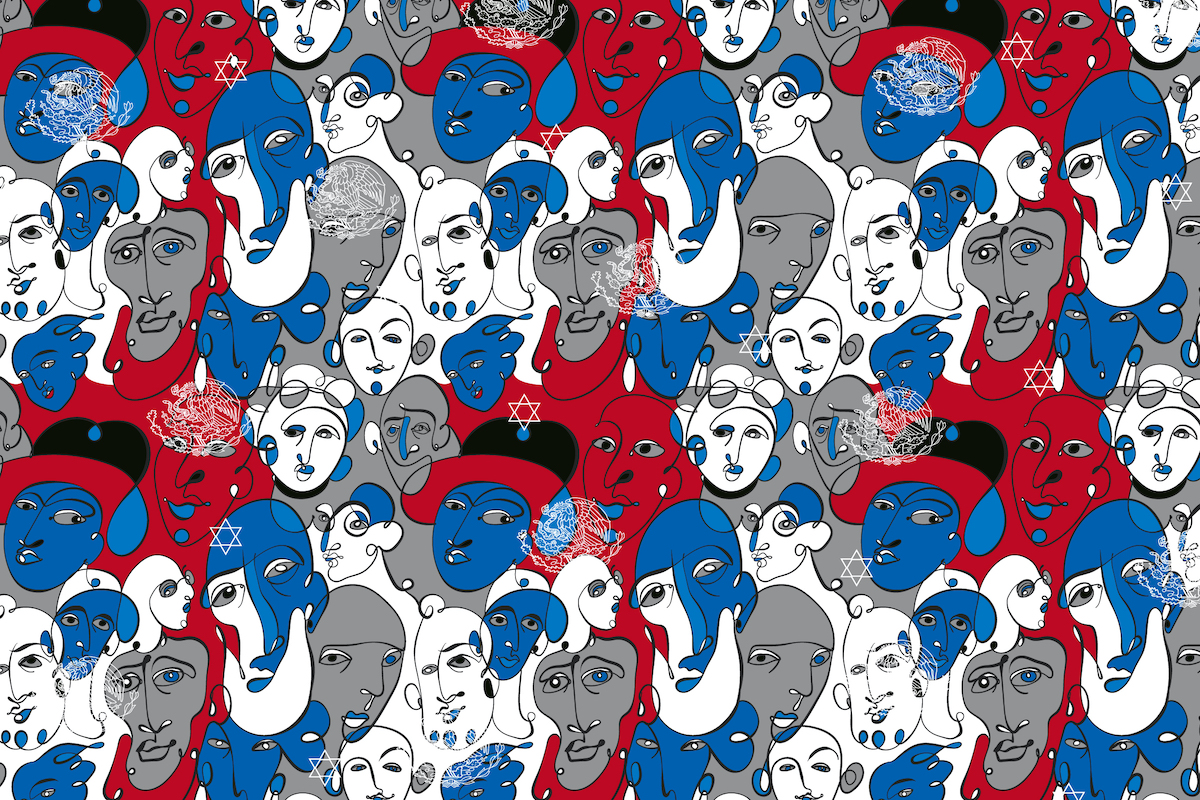My name is Nicholas Castillo: first name Anglicanized-Greek, last name Spanish. Neither speaks to an obvious Jewish heritage, yet I’ve come to view the name as a representation of my relationship to Jewish identity.
With a non-Jewish Mexican American father and a Jewish American mother, one might expect me to have danced at my sister’s quinceañera or sat atop a chair at my own bar mitzvah. But neither ceremony ever occurred within my nuclear family. I was raised in a heavily secular and, in many ways, assimilated Mexican and Jewish household.
During my teenaged years, I found myself frustrated by how disconnected I felt from my Jewish identity. Yet, at the same time, being friends with mostly non-Jewish people led to occasions during which it became clear how Jewish I appeared in others’ eyes. These moments ranged from banal experiences — explaining Passover seders and Chinese food Christmases — to blatant displays of anti-Semitism, during which I felt disturbed by the ugly side of people I otherwise considered close friends.
I fell into a classic circumstance for many multi-ethnic people: Jewish to non-Jews, Latino to Anglos, and not enough of either to myself.
As a teen, explosive arguments with my parents ensued that were filled with angst, laying my failure to be a “real” Jew at their feet. This phase of my cultural awakening solved no problems. I merely stewed in my room, listening to punk music and wishing I knew more Yiddish.
Yet, a key revelation about my Jewish identity came to me amidst this angst. I am a mixed-race man in a world that too often demands a cookie-cutter interpretation of ethnicity. I might never be a Jew who can rattle off the names of patriarchs and matriarchs, or one who can bond with others over bar mitzvah themes. Likewise, I will probably never speak Spanish without an embarrassingly heavy American accent.
With this new view, I set myself to the task of becoming comfortable in the role I had naturally been raised into: a Jewish Latino New Yorker, for whom Klezmer music and Jewish intellectualism were just as significant as the High Holidays. A Jew who is just as likely to be found eating tamales on Christmas as he is hamantaschen on Purim.
I emerged from much of my teenage cultural anxiety armed with a lifestyle built upon the parts of Judaism I had always carried dear to my heart: light religiosity mixed with the celebration of holidays, secular Jewish American culture, an empathetic vision of Zionism, and the Jewish American left-wing tradition. Rather than remaking myself in an image my Hasidic great-grandfather would have preferred, I found a Judaic lifestyle that was not only deeply enriching to my life, but authentic to who I was. And while my cultural expression skewed Jewish, this nuanced outlook didn’t require me to embrace one aspect of my heritage at the expense of another. This, I thought for a time, was a way in which I could live as a Jew comfortable in my own skin.
But then, in classic Jewish form, my self-involved anxiety could not fully be escaped. Those cultural revelations my 16-year-old self proudly proclaimed were crucial, but not an endpoint. I could not shake how alien I still felt to Judaism. My handful of visits to synagogue left me feeling confused and dejected. As much as I felt I was bearing witness to something profound and deeply connected to my ancestors, it became clear that I was doing only one thing: bearing witness. I was surrounded by prayers I could not recite and rituals I could not explain. It was, in large part, intimidating.
It didn’t help that since my days in Jewish pre-K and day camp, I have not been engrossed in Jewish social life. My social circles are mostly non-Jewish and my only experience with Jewish campus life was an explorative visit to my university’s J Street chapter. When taking part in Jewish life, I still often feel as if I am looking through thick ice at an ocean under me, with little ability to fully take part in or understand a vast world.
This is something I am actively working to rectify. Most recently, I took part in my first Rosh Hashanah dinner, hosted by my unofficial godmother. Still, I frequently wonder if I will ever be fully able to comfortably consider myself Jewish. After all, how many times have I wondered: “What kind of Jew is named Nicholas Castillo?” And while I’ve come to appreciate that assimilation and secularism are engrained parts of myself not worth discarding, trying to square that fact with my American, Latino, and Jewish identities has remained a daunting personal task.
If mixed-race youth are being honest, many will tell you they rarely sit around thinking about how proud they feel to represent the melting pot or American salad or whatever people are saying these days. I was once told that mixed-race people were “revolutionary,” and frankly, I try not to be that dramatic. I am not writing an essay to shake my fist at people with more traditional views of identity. In my case, the competing forces of my Jewish, Latino, and assimilated American identities have resulted in a deeply personal process, one that doesn’t have a neat, happy ending. It is at once joyful and frustrating.
These experiences are not unique to me, or even to multi-ethnic people. But what I have found in these last few years is that these complexities are not worth sweeping under the rug for the sake of simplicity. While I am not here to write that “I wouldn’t trade my mixed experience for anything in the world,” I do remain optimistic. My messy, contradictory way of figuring out my Jewish identity has become a fundamental part of how I see myself. It has led to a fuller life enriched by tradition, perspective, and personal agency.
Header image design by Grace Yagel. Original illustration by Natalia Perlik/Getty Images.



